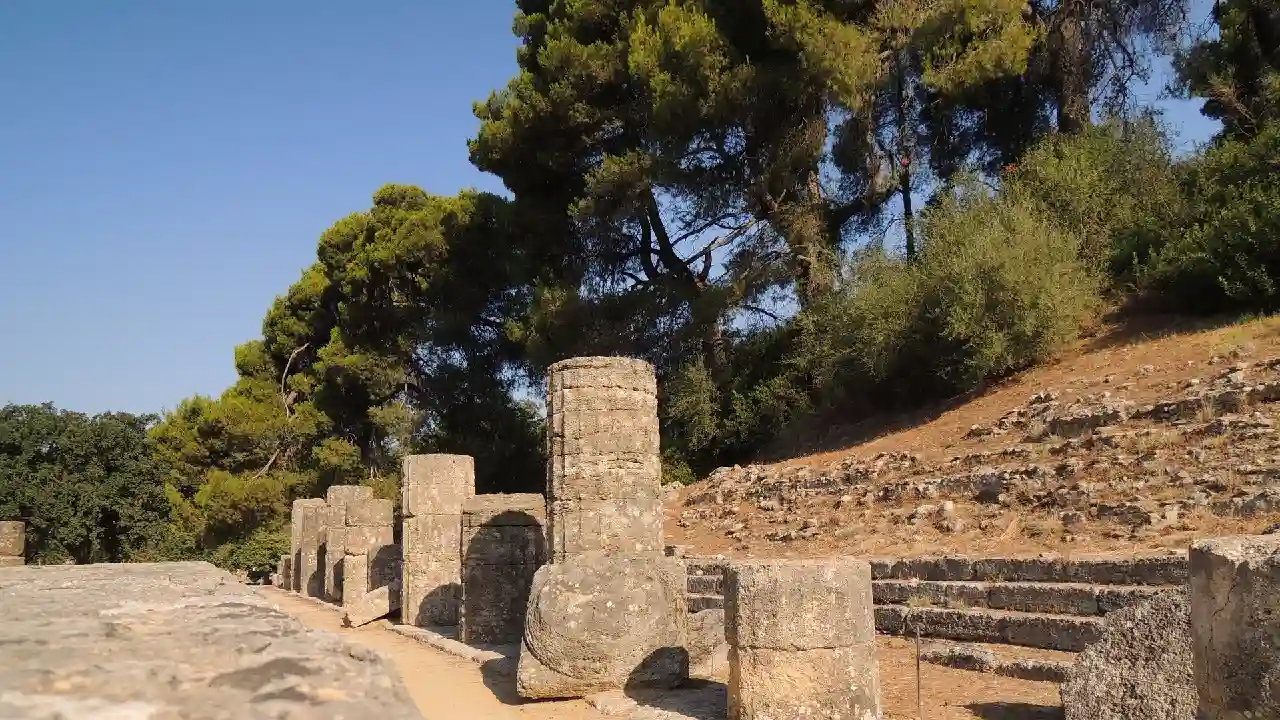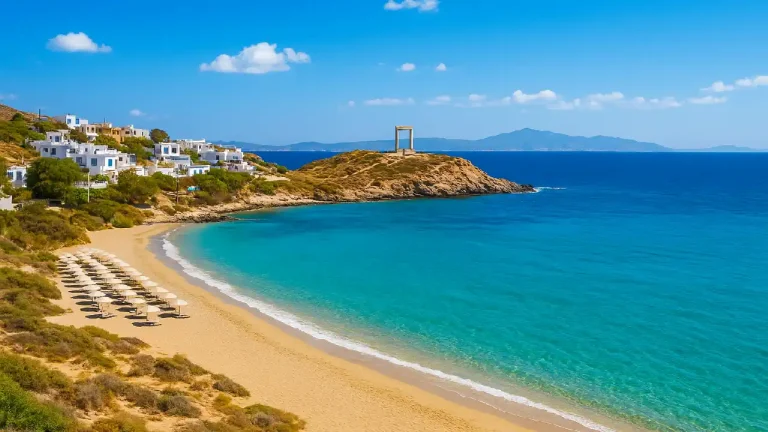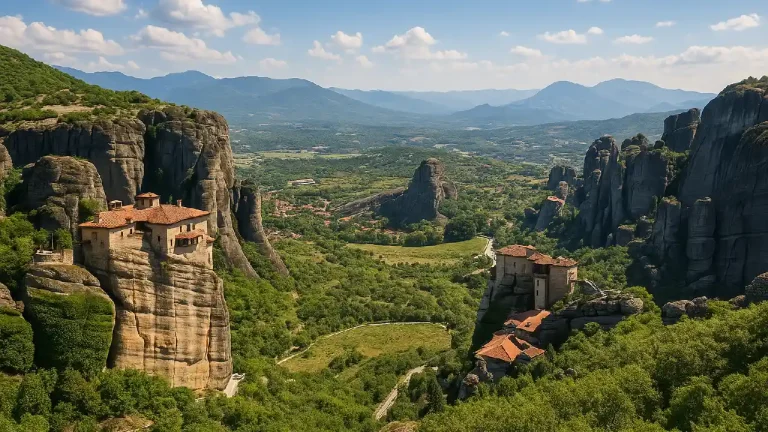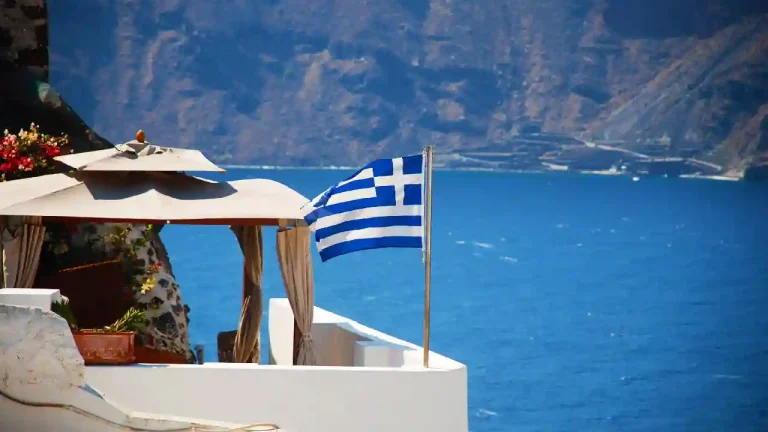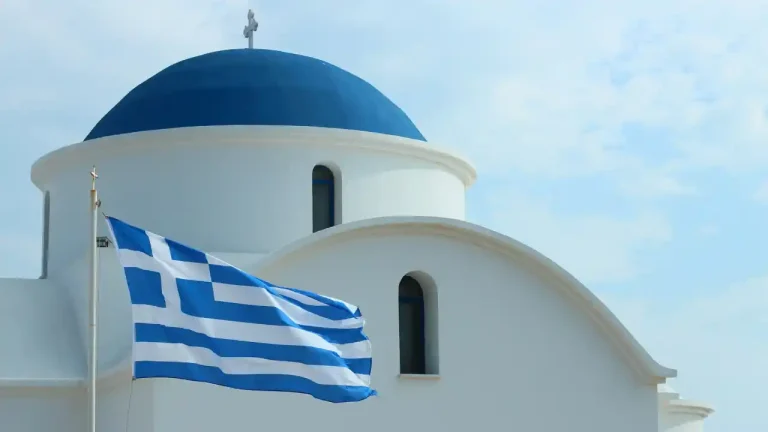Explore the Beauty of Greece in Just 4 Days
Introduction
Greece is a land steeped in history, mythology, and unparalleled beauty. A 4-day classical Greece tour offers a perfect blend of ancient wonders, stunning landscapes, and cultural experiences. From the bustling streets of Athens to the serene ruins of Delphi and Olympia, this tour provides a compact yet comprehensive journey through the heart of classical Greece. Whether you’re a history enthusiast, a culture lover, or simply looking for an unforgettable travel experience, this guide will help you make the most of your short but impactful trip.
4-Day Classical Greece Tour
Day 1: Arrival in Athens
Exploring the Acropolis
Upon arrival in Athens, your first destination should be the iconic Acropolis. This ancient citadel, perched high above the city, is home to several monumental structures, including the Parthenon, the Erechtheion, and the Temple of Athena Nike. The Acropolis is not just a symbol of Athens but also a testament to the architectural and artistic achievements of ancient Greece.
Visiting the Acropolis Museum
After exploring the Acropolis, head to the nearby Acropolis Museum. This modern museum houses a vast collection of artifacts discovered on the Acropolis hill, providing a deeper understanding of the history and significance of the ancient site. The museum’s layout and exhibits are designed to enhance your appreciation of the Acropolis’ historical context.
Strolling through Plaka
Next, take a leisurely walk through Plaka, the oldest neighborhood in Athens. Known for its narrow, winding streets, charming cafes, and vibrant atmosphere, Plaka is the perfect place to immerse yourself in the local culture. Enjoy some traditional Greek cuisine at a taverna and explore the many shops selling souvenirs and handmade crafts.
Experiencing the Changing of the Guard at Syntagma Square
End your first day by witnessing the Changing of the Guard at Syntagma Square. This ceremonial event, performed by the elite Evzones unit, takes place in front of the Hellenic Parliament and is a fascinating display of Greek tradition and precision.
Day 2: Athens to Delphi
Journey to Delphi
On the second day, embark on a journey to Delphi, a site once considered the center of the world in ancient Greek mythology. The drive from Athens to Delphi takes you through picturesque landscapes and quaint villages, offering a glimpse of Greece’s natural beauty.
Exploring the Delphi Archaeological Site
Delphi is renowned for its archaeological site, which includes the Temple of Apollo, the ancient theater, and the stadium. As you walk through the ruins, you’ll feel the mystical aura that has drawn visitors for centuries. The site’s historical significance and breathtaking setting make it a highlight of your tour.
Visiting the Delphi Museum
After exploring the archaeological site, visit the Delphi Museum to see artifacts excavated from the area. The museum’s collection includes statues, pottery, and other relics that provide insight into the religious and cultural practices of ancient Delphi.
Enjoying the Scenic Views
Delphi is nestled on the slopes of Mount Parnassus, offering stunning views of the surrounding valleys and mountains. Take some time to soak in the scenery and capture photos of this awe-inspiring location.
Day 3: Delphi to Olympia
Travel to Olympia
On the third day, travel from Delphi to Olympia, the birthplace of the Olympic Games. The drive takes you through lush landscapes and picturesque towns, making the journey as enjoyable as the destination.
Touring the Ancient Olympia Ruins
Olympia is home to one of the most important archaeological sites in Greece. Here, you can explore the ruins of the ancient sanctuary, including the Temple of Zeus, the Temple of Hera, and the ancient gymnasium. Walking through these historic grounds, you’ll gain a deeper appreciation for the origins of the Olympic Games.
Visiting the Archaeological Museum of Olympia
The Archaeological Museum of Olympia houses an impressive collection of artifacts from the site, including sculptures, pottery, and other relics. Highlights include the statues of Hermes and the Nike of Paionios, which exemplify the artistic achievements of ancient Greece.
Exploring the Stadium and Temples
No visit to Olympia would be complete without a visit to the ancient stadium, where the original Olympic Games were held. You can also explore the temples dedicated to Zeus and Hera, which were central to the religious life of the sanctuary.
Day 4: Olympia to Athens
Return to Athens
On the final day of your tour, return to Athens. The drive back provides an opportunity to reflect on the incredible experiences of the past few days and to anticipate the final highlights of your trip.
Exploring the National Archaeological Museum
Once back in Athens, visit the National Archaeological Museum, which houses the most extensive collection of ancient Greek artifacts in the world. From statues and pottery to jewelry and frescoes, the museum’s exhibits offer a comprehensive overview of Greece’s rich history and cultural heritage.
Shopping at Monastiraki Flea Market
Spend some time exploring the Monastiraki Flea Market, a bustling marketplace where you can find everything from antiques and souvenirs to clothing and jewelry. It’s a great place to pick up unique mementos of your trip and to experience the vibrant atmosphere of Athens.
Enjoying a Farewell Dinner in Athens
End your 4-day tour with a farewell dinner at a traditional Greek restaurant. Savor the flavors of Greek cuisine, from fresh seafood and grilled meats to delicious mezes and desserts. Reflect on the unforgettable experiences of your journey and celebrate the beauty and history of Greece.
Key Attractions on the Tour
The Acropolis
The Acropolis is the quintessential symbol of ancient Greece, representing the artistic and architectural achievements of the classical era. The Parthenon, with its majestic columns and intricate sculptures, stands as a testament to the ingenuity and creativity of ancient Greek civilization.
Delphi Archaeological Site
Delphi, once considered the navel of the world, is a site of immense historical and cultural significance. The Temple of Apollo, where the famous oracle once resided, is surrounded by other important structures, including the ancient theater and the stadium. Delphi’s breathtaking location and rich history make it a must-visit destination.
Ancient Olympia
Olympia, the birthplace of the Olympic Games, offers a fascinating glimpse into the origins of this global sporting event. The site includes the ruins of temples, a stadium, and other structures that played a central role in the ancient games. Visiting Olympia provides a unique connection to the history of athletics and competition.
National Archaeological Museum
The National Archaeological Museum in Athens is a treasure trove of artifacts from ancient Greece. Its extensive collection includes sculptures, pottery, jewelry, and more, offering a comprehensive overview of Greek history and culture. The museum is a must-visit for anyone interested in the art and archaeology of ancient Greece.
Tips for a Successful Tour
Packing Essentials
When packing for your 4-day classical Greece tour, consider the weather and the activities you’ll be undertaking. Comfortable walking shoes are a must, as you’ll be exploring archaeological sites and museums. Bring lightweight clothing for the day, a hat and sunscreen for protection from the sun, and a light jacket for cooler evenings.
Best Time to Visit
The best time to embark on a classical Greece tour is during the spring (April to June) or fall (September to October) when the weather is pleasant and the crowds are smaller. These seasons offer ideal conditions for exploring outdoor sites and enjoying the natural beauty of Greece.
Travel and Accommodation Tips
When planning your trip, consider booking guided tours to enhance your experience and gain insights from knowledgeable guides. Choose accommodations that are centrally located to maximize your time and convenience. Athens offers a wide range of options, from luxury hotels to budget-friendly hostels.
Local Cuisine and Dining Recommendations
Greek cuisine is renowned for its fresh ingredients and flavorful dishes. During your tour, be sure to try local specialties such as moussaka, souvlaki, and baklava. Dining at traditional tavernas and exploring local markets will provide an authentic taste of Greek culture.
Historical Significance of the Sites
The Glory of the Acropolis
The Acropolis is a symbol of the glory and grandeur of ancient Greece. Its construction in the 5th century BCE marked the height of Athenian power and cultural achievement. The Parthenon, dedicated to the goddess Athena, is a masterpiece of classical architecture and a testament to the artistic and engineering prowess of the ancient Greeks.
The Oracle of Delphi
Delphi was considered the center of the world in ancient Greek mythology. The Oracle of Delphi, located within the Temple of Apollo, was a revered source of prophetic wisdom. Pilgrims from across the ancient world would travel to Delphi to seek guidance from the oracle, making it one of the most important religious sites in Greece.
The Birthplace of the Olympic Games
Olympia holds a special place in the history of sports and competition. The ancient Olympic Games, held every four years in honor of Zeus, were a major event in the Greek calendar. Athletes from various city-states would gather to compete in events such as running, wrestling, and chariot racing, fostering a spirit of unity and excellence.
Preserving Greece’s Rich History
The preservation and restoration of Greece’s historical sites are essential for maintaining the country’s cultural heritage. Efforts to protect and conserve these ancient monuments ensure that future generations can continue to learn from and be inspired by the achievements of classical Greece.
Cultural Insights
Greek Mythology and Legends
Greek mythology is rich with stories of gods, heroes, and mythical creatures. These legends are deeply intertwined with the history and culture of Greece, influencing everything from art and literature to modern popular culture. Understanding these myths provides a deeper appreciation of the sites you’ll visit on your tour.
Traditional Greek Festivals
Greece is known for its vibrant festivals, many of which have roots in ancient traditions. Festivals such as Easter, with its elaborate processions and feasts, and the Athens and Epidaurus Festival, featuring theatrical performances and concerts, offer a unique glimpse into Greek culture and community spirit.
Local Art and Handicrafts
Greek art and handicrafts reflect the country’s rich cultural heritage. From intricate pottery and jewelry to traditional embroidery and icon painting, these crafts are a testament to the creativity and skill of Greek artisans. Visiting local markets and shops allows you to take home a piece of Greece’s artistic legacy.
Greek Hospitality and Customs
Greek hospitality, or “philoxenia,” is legendary. The warm and welcoming nature of the Greek people is evident in their customs and traditions. Whether you’re dining in a local taverna or visiting a family-run shop, you’ll experience the genuine friendliness and generosity that are hallmarks of Greek culture.
Travel Logistics
Transportation Options
Traveling between Athens, Delphi, and Olympia is relatively straightforward, with options including rental cars, buses, and guided tours. Renting a car provides flexibility and the opportunity to explore at your own pace, while guided tours offer convenience and expert insights into the sites you visit.
Booking Guided Tours
Booking a guided tour can enhance your experience by providing historical context and insider knowledge. Professional guides can offer fascinating stories and details that you might miss on your own. Many tours also include transportation and accommodations, simplifying your travel plans.
Language and Communication
While Greek is the official language, English is widely spoken in tourist areas. Learning a few basic Greek phrases can enhance your travel experience and help you connect with locals. Signs and menus in major tourist destinations are often available in both Greek and English.
Safety and Health Tips
Greece is generally a safe destination for travelers, but it’s always wise to take basic precautions. Keep an eye on your belongings, especially in crowded areas, and be aware of your surroundings. Stay hydrated, use sunscreen, and wear appropriate footwear for exploring archaeological sites.
Budgeting for Your Trip
Cost of Attractions
Admission fees for historical sites and museums vary, but many offer discounts for students, seniors, and children. It’s a good idea to budget for entrance fees, guided tours, and any additional activities you plan to enjoy during your trip.
Accommodation Options
Greece offers a wide range of accommodations, from luxury hotels to budget-friendly hostels and guesthouses. Prices can vary significantly depending on the location and time of year, so it’s important to book in advance and consider your budget when choosing where to stay.
Dining and Shopping Costs
Dining out in Greece can be affordable, especially if you choose local tavernas and markets over tourist-oriented restaurants. Shopping for souvenirs and gifts is also reasonably priced, with many unique and handmade items available. Budget for meals, snacks, and any shopping you plan to do.
Money-Saving Tips
To save money, consider traveling during the shoulder seasons (spring and fall), when prices are lower and crowds are smaller. Look for accommodation deals, use public transportation, and take advantage of free attractions and activities. Booking in advance and planning your itinerary can also help you stay within your budget.
Frequently Asked Questions
What is the best time of year for a 4-day tour of Greece?
The best time to visit Greece for a 4-day tour is during the spring (April to June) or fall (September to October). These seasons offer pleasant weather, fewer crowds, and ideal conditions for exploring outdoor sites.
Are guided tours recommended?
Yes, guided tours are highly recommended for a 4-day classical Greece tour. They provide valuable insights, historical context, and convenience, allowing you to make the most of your limited time and enhancing your overall experience.
How should I dress for visiting historical sites?
When visiting historical sites in Greece, it’s best to wear comfortable, lightweight clothing and sturdy walking shoes. Consider bringing a hat, sunglasses, and sunscreen for protection from the sun. Modest clothing is also appreciated at religious sites.
What local foods should I try?
Some must-try local foods in Greece include moussaka, souvlaki, tzatziki, baklava, and fresh seafood. Greek cuisine is known for its fresh ingredients and flavorful dishes, so be sure to explore traditional tavernas and markets for an authentic taste.
Is it safe to travel in Greece?
Yes, Greece is generally a safe destination for travelers. However, it’s always important to take basic precautions, such as keeping an eye on your belongings, staying aware of your surroundings, and following any local advisories.
What souvenirs should I buy in Greece?
Popular souvenirs from Greece include handmade jewelry, pottery, olive oil, honey, and traditional textiles. These items reflect the rich cultural heritage of Greece and make wonderful keepsakes or gifts.
Conclusion
A 4-day classical Greece tour offers a unique opportunity to immerse yourself in the rich history, culture, and beauty of this ancient land. From the awe-inspiring Acropolis in Athens to the mystical ruins of Delphi and the birthplace of the Olympic Games in Olympia, each day brings new discoveries and unforgettable experiences. By planning ahead, embracing local customs, and savoring the flavors of Greek cuisine, you’ll create memories that will last a lifetime. Embark on this journey and let the wonders of classical Greece captivate your heart and soul.

